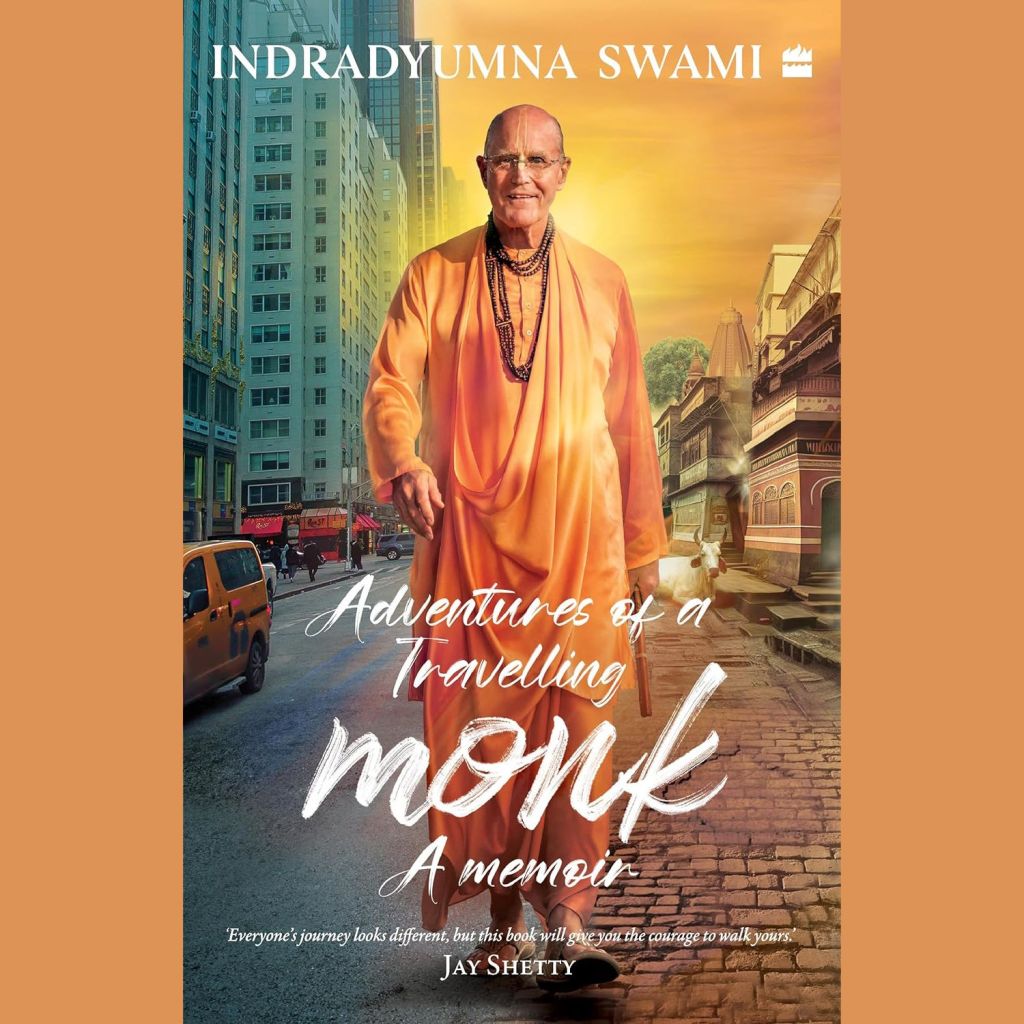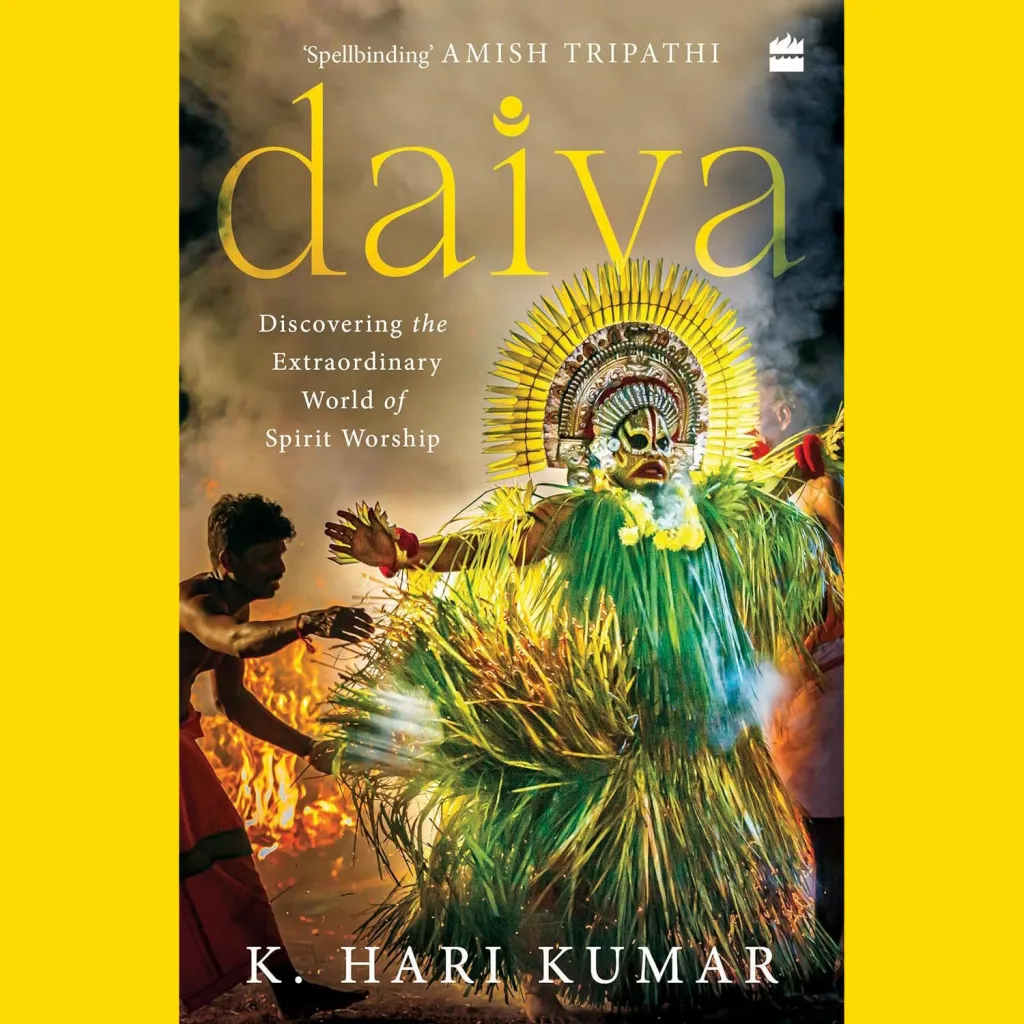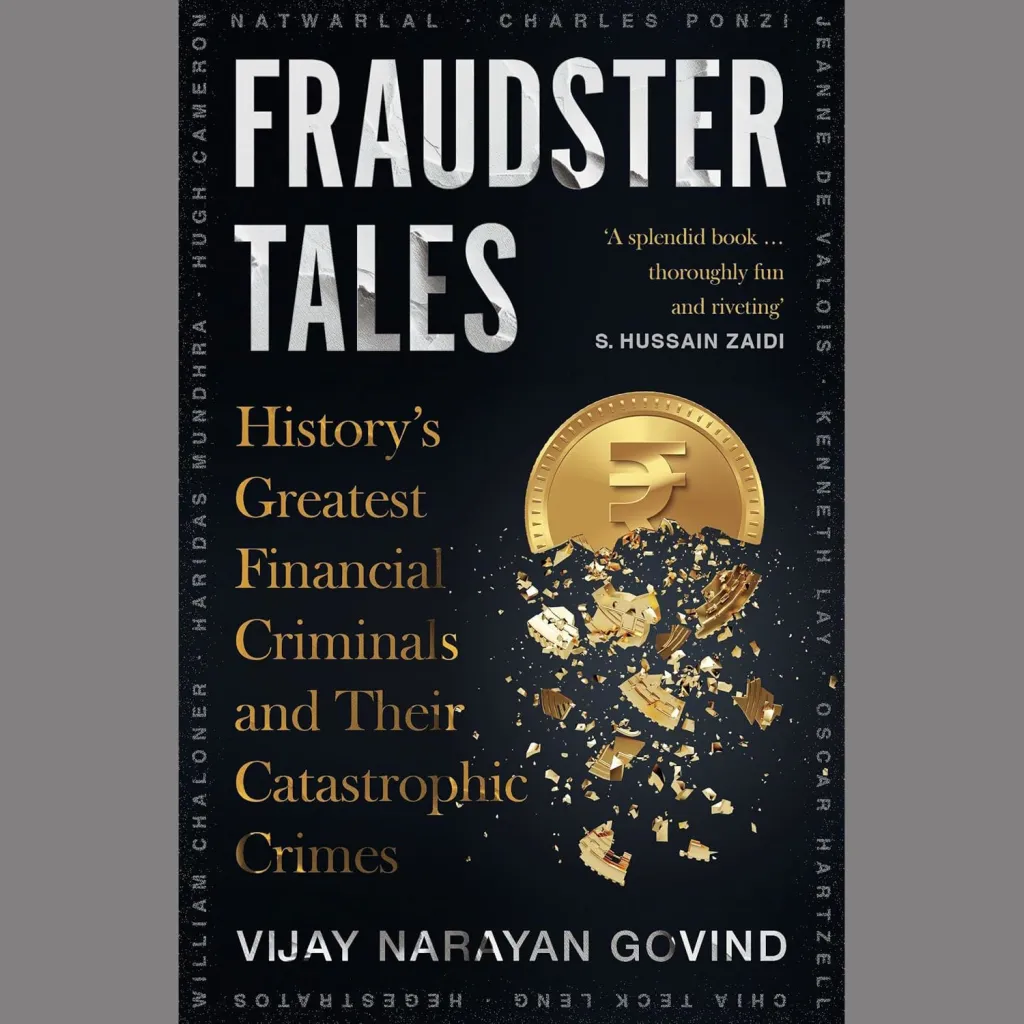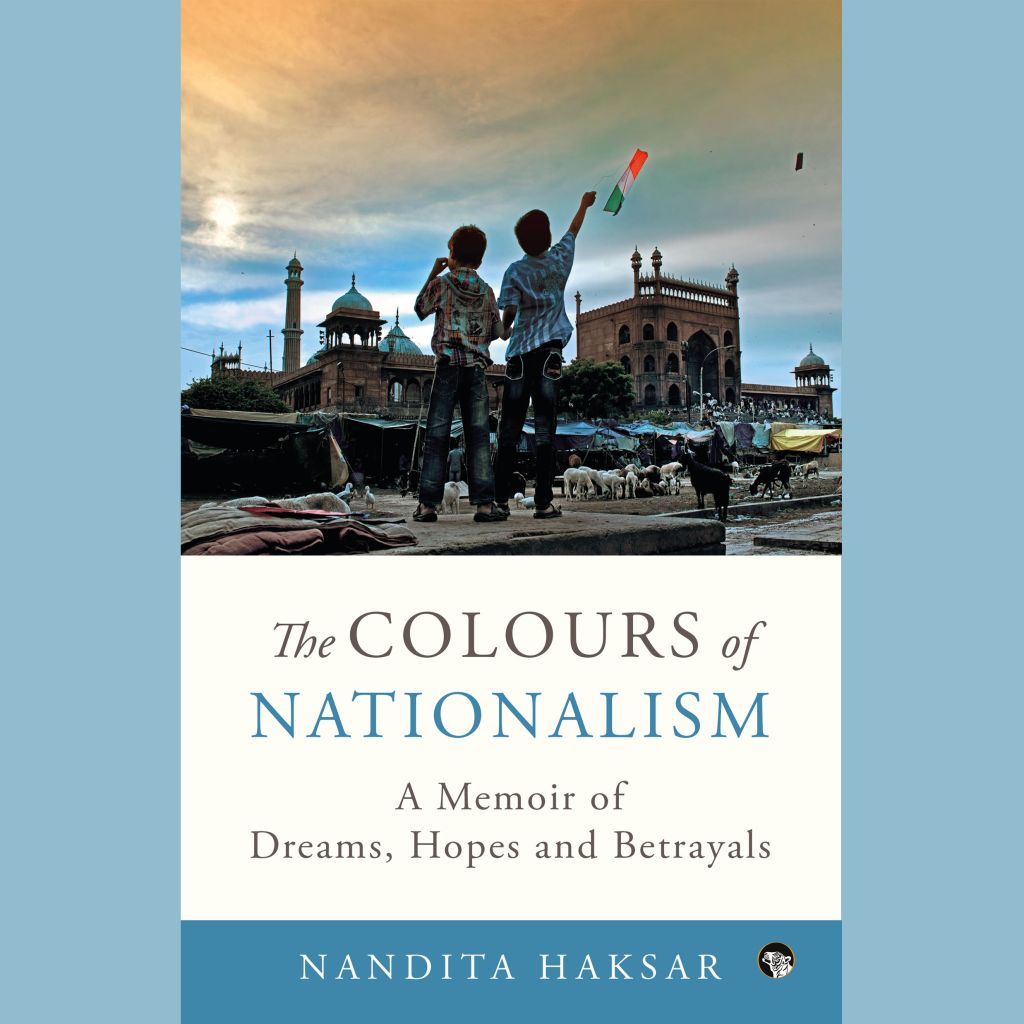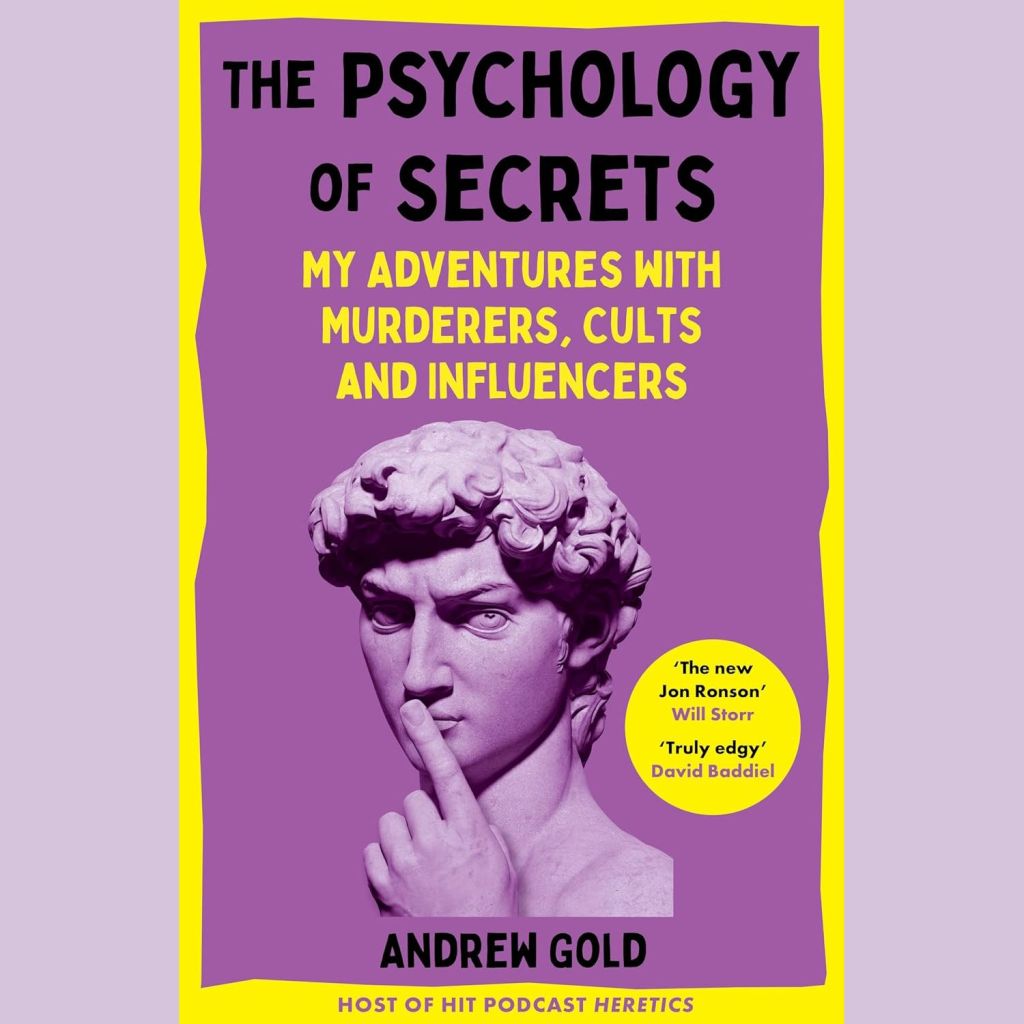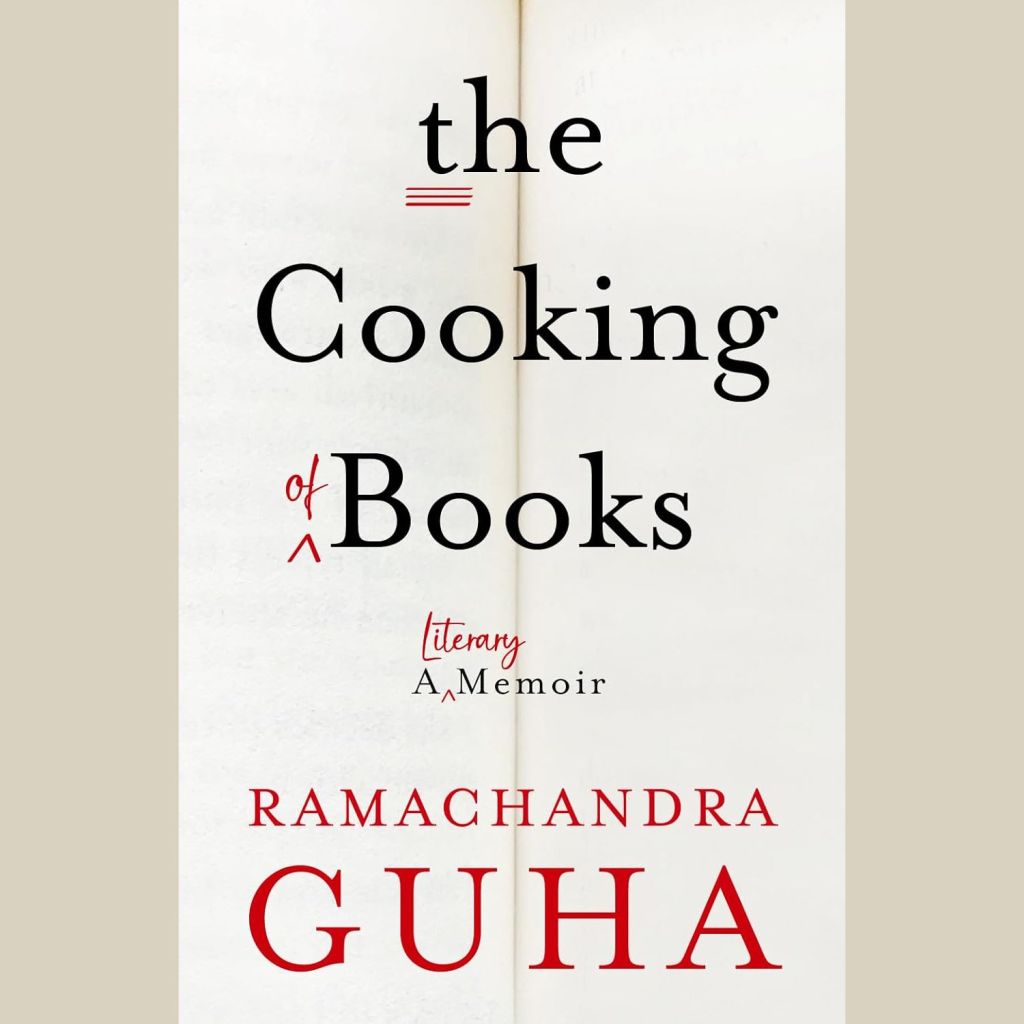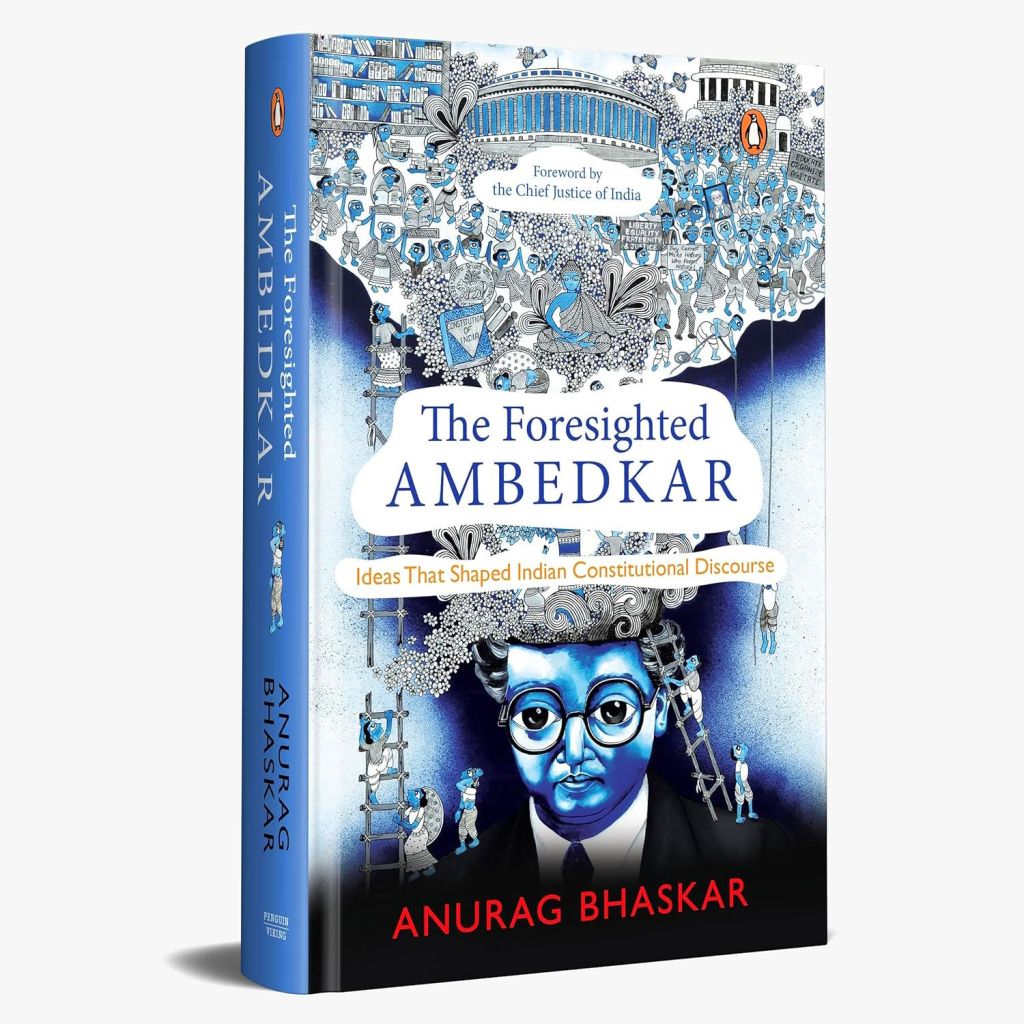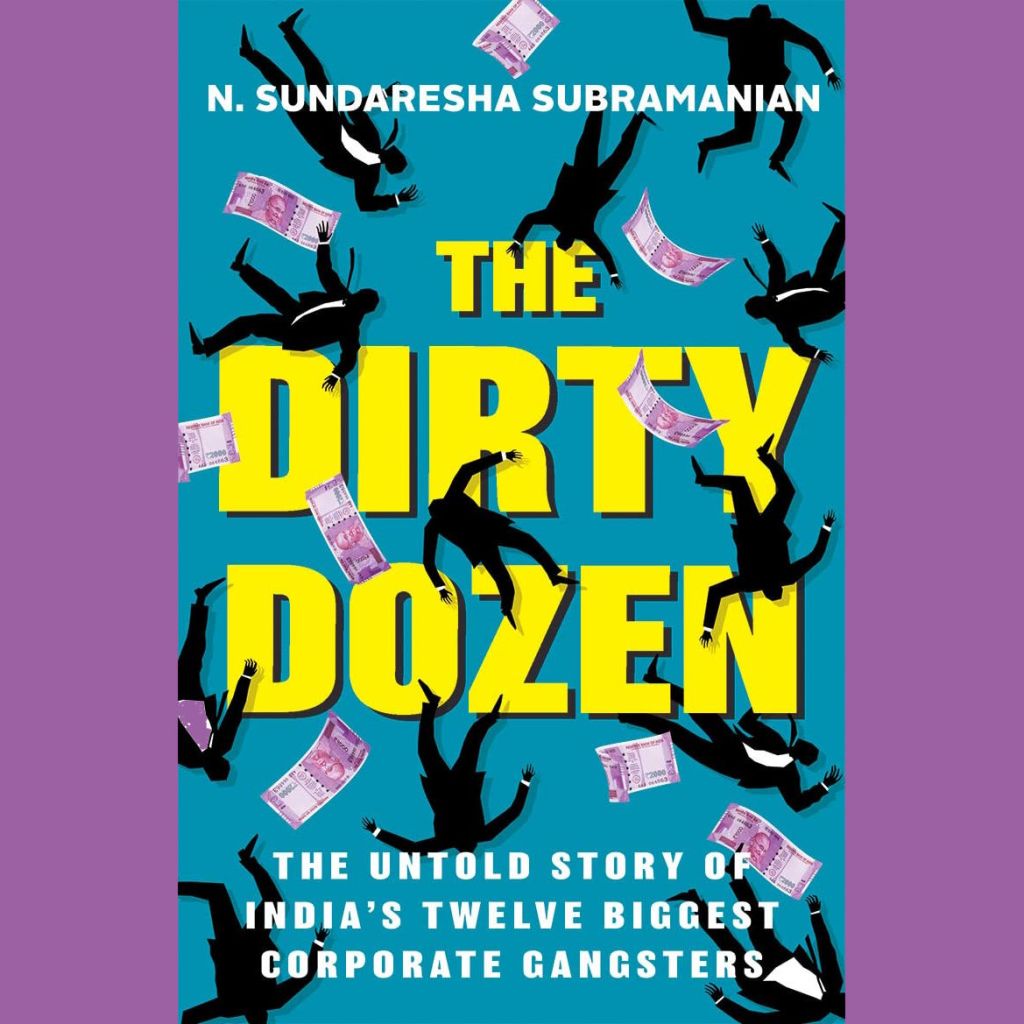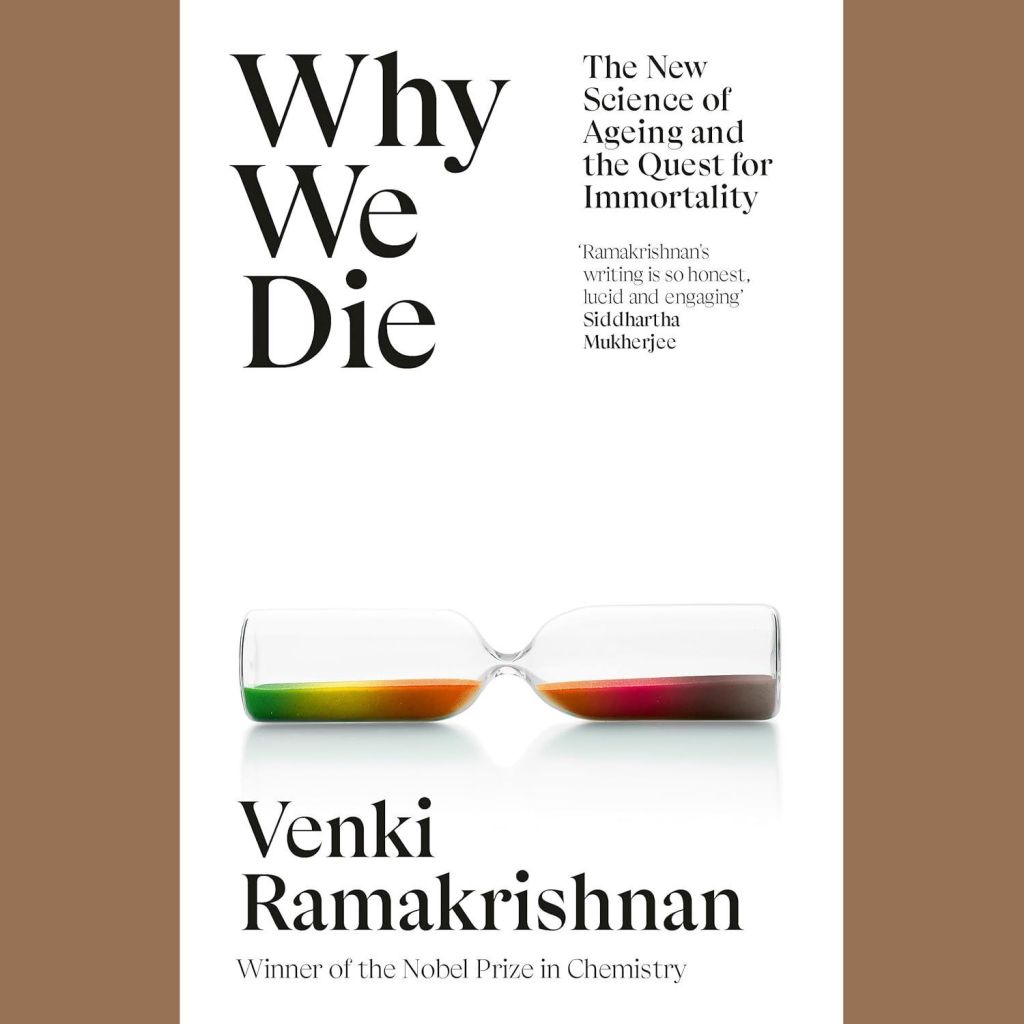Truth is stranger than fiction, they say. And that sure seems to be the case in the world of medicine. Over the last two decades, the pharma industry has earned significant disrepute for the dark, dubious ways in which it sometimes functions. Pharma companies (especially those that manufacture generic drugs), many of which have often blatantly, habitually ignored quality guidelines and evaded inspections with the intent to deceive, have palmed off spurious, low-quality drugs to unsuspecting users, and incentivised doctors to prescribe more medicine (even if the said medicines were doing more harm than good) and higher dosages in order to boost profits. With these companies, the sole aim seems to have been to evade regulation and maximise profits at the cost of patients’ health. It’s a shady world of nefarious dealings and cut-throat competition, where companies will do anything to earn their next billion bucks. In this context, here is our list of some of the best books that have exposed big pharma, revealed the gory details that pharma companies tried their best to hide, and unveiled the stinking morass of greed, lies and deception that big pharma can be. Forget medical thrillers – these books are drama in real life. Prepare to be shocked.

Bottle of Lies: Ranbaxy and the Dark Side of Indian Pharma, by Katherine Eban
‘In 2004, Dinesh Thakur, a senior employee of Ranbaxy, then India’s largest pharma company, discovered a terrible secret. Ranbaxy had been fabricating the test results of their drugs, endangering millions of patients. Thakur resigned and became a whistleblower and ultimately brought the company to its knees. But the rot in Indian pharma isn’t confined to Ranbaxy alone. In this book, investigative journalist Katherine Eban shows how fraud and trickery are deeply entrenched in much of the industry and raises troubling questions about some of its biggest names. Filled with shocking and eye-opening details, this book lays bare the ugly truth of Indian pharma,’ says the publisher’s note. Indeed, it’s a deeply shocking book and the revelations it contains, about Ranbaxy, the generic drugs / pharmaceuticals industry in general, and the lengths to which some pharma companies are prepared to go, the depths they are only all too willing to sink to in order to earn money, are quite disturbing. That innocuous white pill you used to pop in your mouth without a second thought – after you read this book, that pill won’t ever be the same again. Where is this medicine coming from? What has gone into making it? The book forces you to think, and ask questions that may never have occurred to you before you read the book. Quite scary.
‘In Bottle of Lies, investigative journalist and author Katherine Eban exposes the dangerous, dark side of some generics. Her propulsive narrative investigation traces the history of the generic-drug boom, revealing how intense demand for cheaper drugs opened a dangerous chasm between what regulations required of drug companies and how some of those companies actually behaved. She also documents how the FDA struggled to address those safety gaps, and the challenges that still remain. Eban describes accounts of companies hurriedly cleaning workspaces, shredding records and fabricating documents, even destroying visibly contaminated drugs,’ says NPR. ‘Eban’s pacing, along with a structure that makes this astonishingly complex story easy to follow, gives the book a rough, unforced elegance. Her portrayal of Thakur’s [the whistleblower who exposed Ranbaxy’s crimes against humanity] plight will set crawling the skin of anyone who has alerted regulators to horrid misdeeds only to find those regulators not just timid but outright protective of the villains,’ adds The New York Times.
Bottle of Lies is available on Amazon
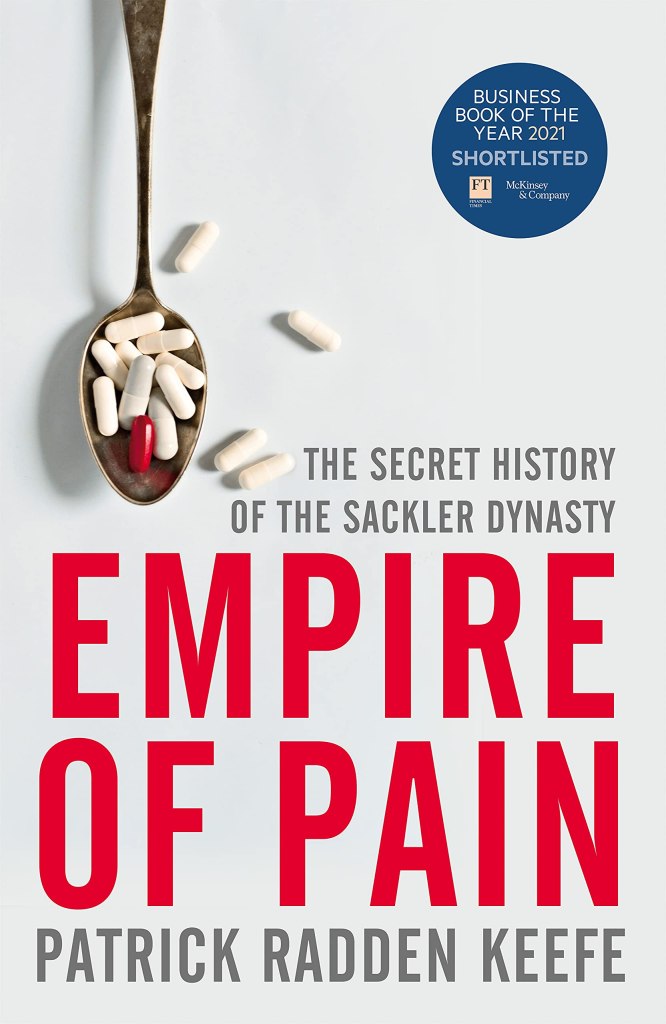
Empire of Pain: The Secret History of the Sackler Dynasty, by Patrick Radden Keefe
This is the winner of the 2021 Baillie Gifford Prize for Non-Fiction and is one of Barack Obama’s favourite books of 2021. ‘Empire of Pain is the story of a dynasty: a parable of 21st century greed. It’s the gripping and shocking story of three generations of the Sackler family and their roles in the stories of Valium, Oxycontin and the opioid crisis. The Sackler family is one of the richest in the world, and their name adorns the walls of many famous institutions – Harvard; the Metropolitan Museum of Art; Oxford; the Louvre. The source of the family fortune was vague, until it emerged that the Sacklers were responsible for making and marketing Oxycontin, a blockbuster painkiller that was a catalyst for the opioid crisis – an international epidemic of drug addiction which has killed nearly half a million people. A masterpiece of narrative reporting and writing from award-winning journalist Patrick Radden Keefe,’ says the publisher’s note. It’s powerful storytelling that’ll leave you shaken and your belief in humanity diminished, when you read about how the Sacklers continued to incentivise, encourage and push doctors to keep prescribing Oxycontin – at ever higher dosages – despite knowing all too well that the medicine caused addiction, untold misery and death.
‘Keefe combines a wealth of new material with his own extensive reporting – he spoke to more than 200 people – to paint a devastating portrait of a family consumed by greed and unwilling to take the slightest responsibility or show the least sympathy for what it wrought. While other accounts of the opioid crisis have tended to focus on the victims, Empire of Pain stays tightly focused on the perpetrators,’ says The New York Times. ‘Keefe paints devastating portraits of the Sacklers, their greed, pride and monumental sense of entitlement. Empire of Pain is a gripping tale of capitalism at its most innovative and ruthless that Keefe tells with a masterful grasp of the material,’ says The Guardian. ‘Of particular interest is the book-closing account of the Sacklers’ legal efforts to intimidate the author as he tried to make his way through the ‘fog of collective denial’ that shrouded them. A definitive, damning, urgent tale of overweening avarice at tremendous cost to society,’ adds Kirkus.
Empire of Pain is available on Amazon

Bad Blood: Secrets and Lies in a Silicon Valley Startup, by John Carreyrou
‘The full inside story of the breathtaking rise and shocking collapse of Theranos, the multibillion-dollar biotech startup founded by Elizabeth Holmes, by the prize-winning journalist who first broke the story and pursued it to the end, despite pressure from its charismatic CEO and threats by her lawyers. In 2014, Theranos founder and CEO Elizabeth Holmes was widely seen as the female Steve Jobs: a brilliant Stanford dropout whose startup unicorn promised to revolutionize the medical industry with a machine that would make blood testing significantly faster and easier. Backed by investors such as Larry Ellison and Tim Draper, Theranos sold shares in a fundraising round that valued the company at more than $9 billion, putting Holmes’s worth at an estimated $4.7 billion. There was just one problem: The technology didn’t work. In Bad Blood, John Carreyrou tells the riveting story of the biggest corporate fraud since Enron, a tale of ambition and hubris set amid the bold promises of Silicon Valley,’ says the publisher’s note. Elizabeth Holmes, founder of Theranos, has recently been sentenced to 11 years in prison and is being asked to pay close to $900 million in damages, though the prison sentence is yet to begin and Holmes is fighting Federal prosecutors’ demand for the money.
‘Bad Blood is a gripping account of the rise and fall of Elizabeth Holmes, founder of Theranos, a company that promised to revolutionize laboratory testing through the use of nanotechnology. Underlying the basic tale of an entrepreneur who overpromised and underdelivered is as complicated and instructional a morality tale as modern life has to offer, one of good intentions gone awry, of the temptations of fame and self-deceit and of how those with power can influence can not only seduce others to their viewpoint but use their considerable strength to crush anyone who might have the temerity to challenge their carefully constructed fantasy,’ says the National Library of Medicine. ‘I don’t read a lot of page turners. I often find myself unable to put a book down, but they’re not the kinds of books that would keep most people glued to their chairs. Still, I recently found myself reading a book so compelling that I couldn’t turn away. Bad Blood tackles some serious ethical questions, but it is ultimately a thriller with a tragic ending. It’s a fun read full of bizarre details that will make you gasp out loud. The story almost feels too ridiculous to be real,’ added Bill Gates.
Bad Blood is available on Amazon
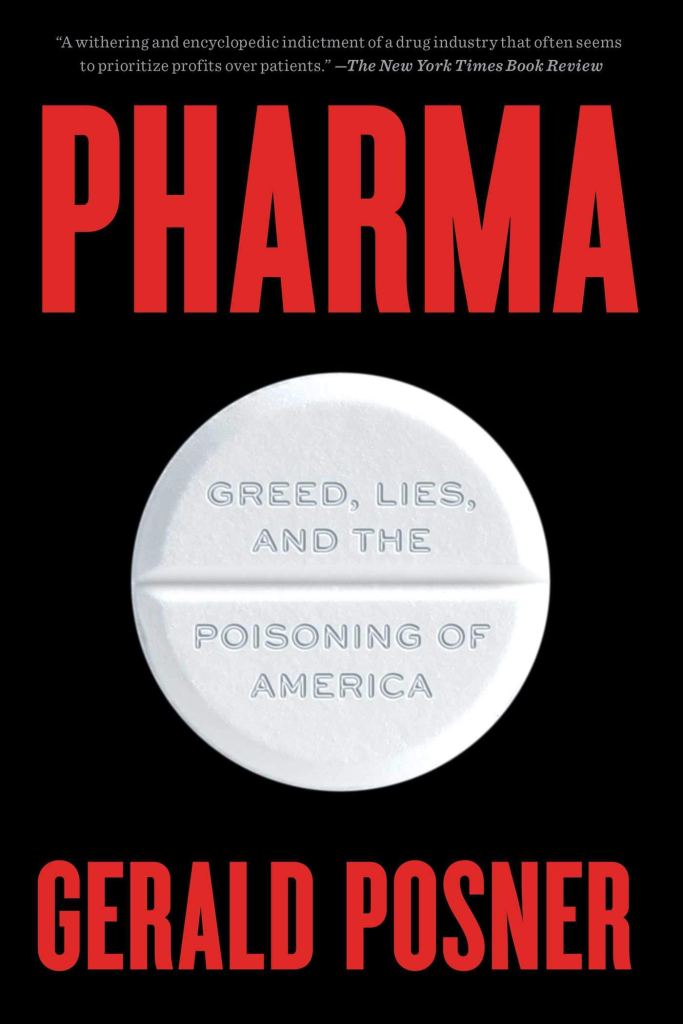
‘Journalist and New York Times bestselling author Gerald Posner traces the heroes and villains of the trillion-dollar-a-year pharmaceutical industry and uncovers how those once entrusted with improving life have often betrayed that ideal to corruption and reckless profiteering, with deadly consequences. Pharmaceutical breakthroughs such as antibiotics and vaccines rank among some of the greatest advancements in human history. Yet exorbitant prices for life-saving drugs, safety recalls affecting tens of millions of Americans, and soaring rates of addiction and overdose on prescription opioids have caused many to lose faith in drug companies. Now, Americans are demanding a national reckoning with a monolithic industry. Pharma introduces brilliant scientists, in-corruptible government regulators, and brave whistleblowers facing off against company executives often blinded by greed. Pharma reveals how and why American drug companies have put earnings ahead of patients,’ says the publisher’s note.
‘Posner draws on [multiple] incidents to introduce the idea that, in the early days of the pharmaceutical industry at least, it could be difficult to distinguish drugmakers from snake oil purveyors. In Pharma, he focuses on crimes and misdemeanours committed by drugmakers starting in the early 1900s, with their outrageous marketing of addictive medicines like opioids, concluding more than a century later, full circle, with their deliberate downplaying of the risk of modern-day opioids. The author envisions Pharma as a definitive history of the pharmaceutical industry in its entirety, in a single volume. The result is a withering and encyclopaedic indictment of a drug industry that often seems to prioritize profits over patients,’ says The New York Times. ‘Pharma covers in very readable detail the exponential drugging of America, with demand for ‘happy pill’ benzodiazepines surging in the late 1950s and early ’60s, as increasingly powerful drug companies pressure the medical establishment to ‘medicalise’ more and more ailments. Then those same companies patented and sold chemical ‘solutions,’ with a handful of families pulling most of the strings, and reaping huge profits,’ adds The Christian Science Monitor.
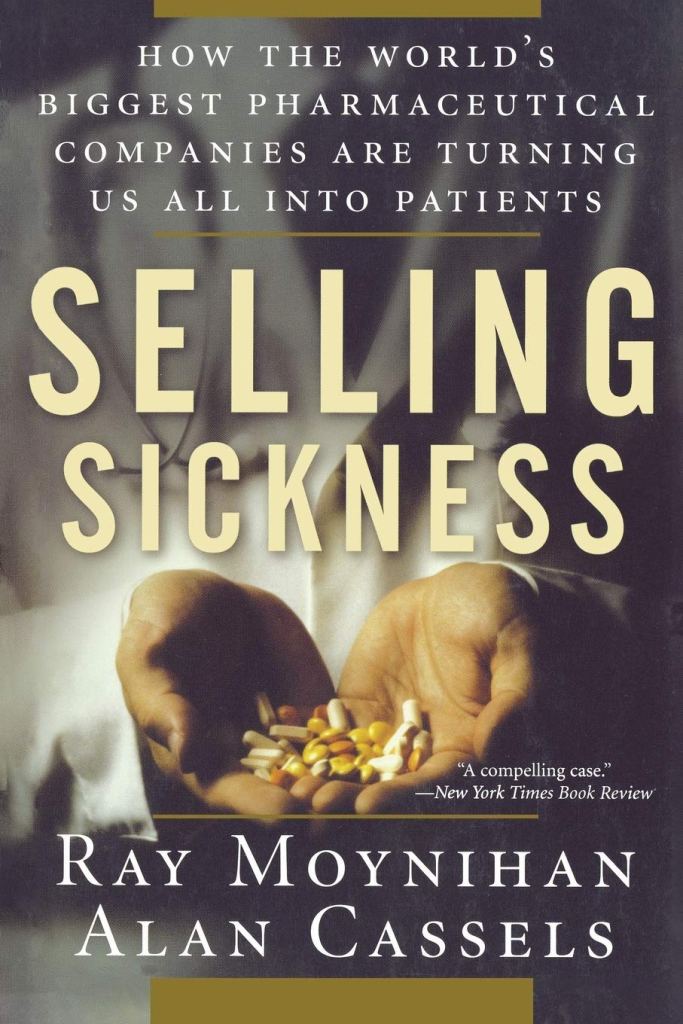
Selling Sickness: How the World’s Biggest Pharmaceutical Companies Are Turning Us All Into Patients Paperback, by Ray Moynihan, Alan Cassels
‘Thirty years ago, Henry Gadsden, the head of Merck, one of the world’s largest drug companies, told Fortune magazine that he wanted Merck to be more like chewing gum maker Wrigley’s. It had long been his dream to make drugs for healthy people so that Merck could ‘sell to everyone.’ Gadsden’s dream now drives the marketing machinery of the most profitable industry on earth. Drug companies are systematically working to widen the very boundaries that define illness, and the markets for medication grow ever larger. Mild problems are redefined as serious illness and common complaints are labelled as medical conditions requiring drug treatments. Runny noses are now allergic rhinitis, PMS has become a psychiatric disorder, and hyperactive children have ADD. When it comes to conditions like high cholesterol or low bone density, being ‘at risk’ is sold as a disease. Selling Sickness reveals how widening the boundaries of illness and lowering the threshold for treatments is creating millions of new patients and billions in new profits, in turn threatening to bankrupt health-care systems all over the world. As more and more of ordinary life becomes medicalised, the industry moves ever closer to Gadsden’s dream: ‘selling to everyone,’ says the publisher’s note.
‘Selling Sickness is a spirited journalistic exposure of the methods used by the pharmaceutical industry to expand the market for its products. These include the redefinition of risk factors as diseases afflicting substantial sections of society and requiring treatment with medication. Another stratagem is to persuade both doctors and patients that conditions [which may not necessarily require medication] should be diagnosed and treated much more widely. Yet another trick is the naming of new disorders [and linking those to] a specific drug treatment,’ says the National Library of Medicine. ‘Pharmaceutical companies promote all these conditions through their cultivation of ‘thought leaders’ in the relevant fields and through the presence of recipients of substantial financial favours on elite medical bodies concerned with defining diseases and promulgating guidelines on diagnosis and treatment. The authors show how the processes of ‘disease mongering’ have helped to turn pharmaceuticals into a global $500 billion industry, one of the most profitable spheres of capitalist enterprise,’ it adds. ‘This accessible study about the collusion between medical science and the drug industry emphasizes how drug companies market their products by either redefining problems as diseases or redefining a condition to encompass a greater percentage of the population. Through aggressive merchandising, funding of medical conferences and expensive perks, drug companies win doctors over to diagnosing these ‘diseases’ and prescribing drugs for them,’ says Publishers Weekly.
Selling Sickness is available on Amazon
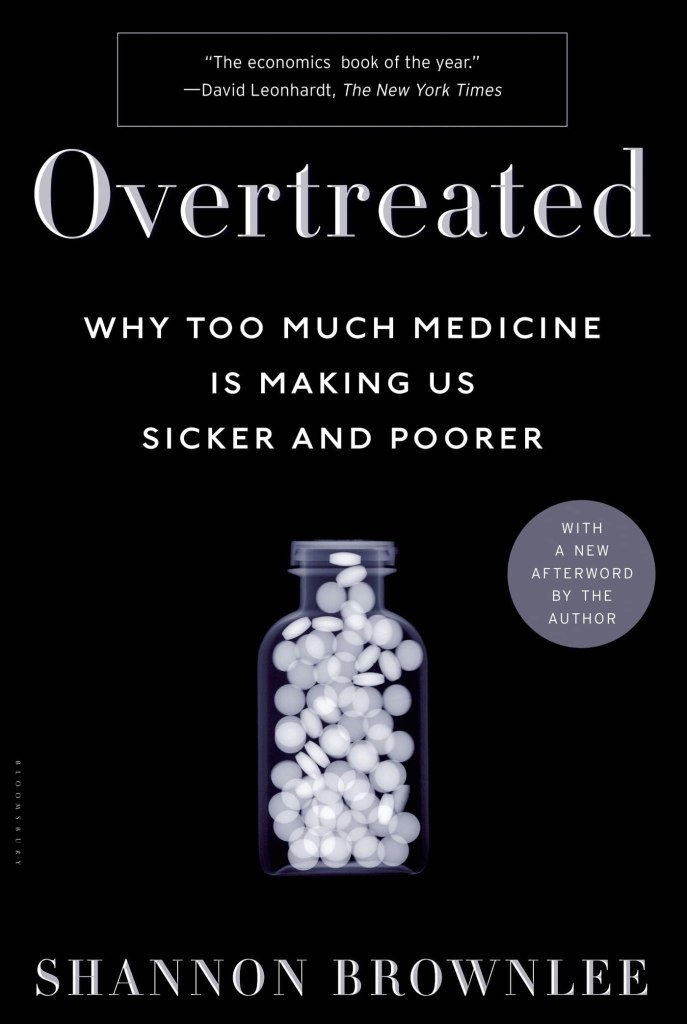
Overtreated: Why Too Much Medicine Is Making Us Sicker and Poorer, by Shannon Brownlee
‘Our health care is staggeringly expensive, yet one in six Americans has no health insurance. We have some of the most skilled physicians in the world, yet one hundred thousand patients die each year from medical errors. In this gripping, eye-opening book, award-winning journalist Shannon Brownlee takes readers inside the hospital to dismantle some of our most venerated myths about American medicine. Brownlee dissects what she calls ‘the medical-industrial complex’ and lays bare the backward economic incentives embedded in our system, revealing a stunning portrait of the care we now receive,’ says the publisher’s note. ‘Nevertheless, Overtreated ultimately conveys a message of hope by reframing the debate over health care reform. It offers a way to control costs and cover the uninsured, while simultaneously improving the quality of American medicine. Shannon Brownlee’s humane, intelligent, and penetrating analysis empowers readers to avoid the perils of overtreatment, as well as pointing the way to better health care for everyone,’ it adds.
‘Overtreated examines the US health care system [and] exploding health care costs: perverse incentives, misinformation about the value of many health procedures and an insidious profit motive that sometimes results in the delivery of health care that is a waste, unnecessary and even harmful. The author surveys a whole range of expensive and sometimes useless health care practices, from bypass surgery (half of bypass surgery patients over 65 suffer some form of dementia as a result of their surgery) to cancer screening, where much of the screening and scanning for disease causes immeasurable anxiety in the population, yet delivers little demonstrable health benefit. Brownlee, a crack American health journalist, has produced a compelling and damning indictment of the way health care is organized and delivered in the richest country in the world,’ says the National Library of Medicine. Though the book talks about the American medical system, much of the ills and malpractices mentioned therein are just as relevant in India, with doctors prescribing a battery of tests and expensive tests and MRI / PET scans at the drop of a hat, and even recommending surgery where it might not really be required. The unholy nexus between doctors, hospitals, pathology labs and medical insurance companies – all of whom are in single-minded pursuit of making maximum amounts of money, the patient be damned – needs to be highlighted and this book is a step in that direction.
Overtreated is available on Amazon
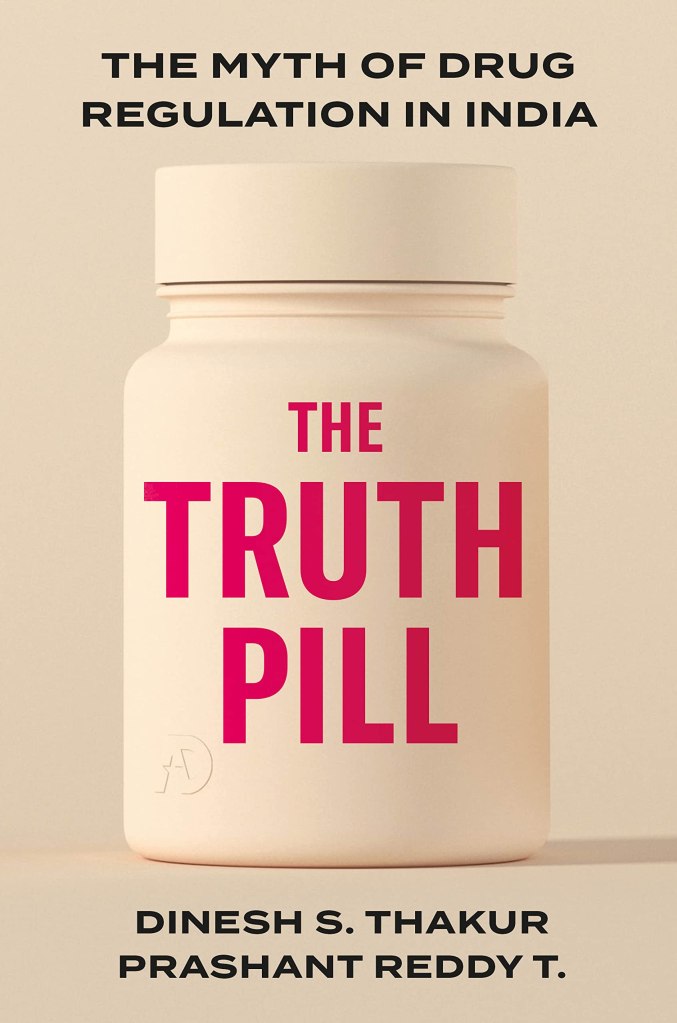
The Truth Pill, by Dinesh Singh Thakur and Prashant Reddy Thikkavarapu
‘Since 2004, when the fraud at Ranbaxy, the largest Indian pharmaceutical company at the time first came to light, the Indian pharmaceutical industry and clinical research organizations have been rocked by a series of scandals after investigations by American and European drug regulators. While the West has responded to concerns about quality of ‘Made in India’ medicine by blocking exports from many Indian pharmaceutical companies, the Indian government responded not with regulatory reform but conspiracy theories about ‘vested interests’ working against India. More worryingly, the Indian state has also turned a blind eye to a far more serious quality crisis in its domestic pharmaceutical market. At times, these quality issues manifest themselves in deaths of Indian citizens as happened in early 2020 when 11 children died in Jammu because of adulterated cough syrup. On other occasions, a dodgy drug approval process has led to the Indian regulator approving sales of drugs that have never been approved by regulators in the developed markets. The result is not just poor health outcomes but outsize profits for pharmaceutical companies manufacturing medicines that have never been validated through scientifically rigorous clinical trials for therapeutic evidence,’ says the publisher’s note.
‘These twin crises, in both the domestic and export markets is because India has either outdated regulations or no regulations in some areas. Even the outdated regulations are enforced with gloves by drug inspectors and judicial magistrates who are ready to forgive even those whose drugs are found to contain barely any active ingredient or dangerously high levels of bacterial endotoxins. In a race for growth of the pharmaceutical industry, the Indian state has sacrificed scientific rigour and ignored the basic principles of public health. Given India’s position as the pharmacy of the developing world, the failure of the Indian state is a problem for not just India but most of the developing world. This timely, important and compelling book based on deep research, questions and analyses the actions of the institutions that are responsible for the safety and efficacy of the Indian drug supply in the context of the historical evolution of the Drugs Act 1940 from pre-Independence India to the present day. The future of Indian public health lies in responding to the issues raised in this book,’ it adds.
‘Through a series of case studies, publicly available data and information culled through hundreds of RTI applications in recent years, the authors expose the holes in the regulatory system, weak and ineffective enforcement of the law, leniency shown by courts and the political interference to shield the industry. The book also deals with regulatory processes related to the approval of new drugs. On the highly contentious and politically-surcharged issue of regulating Ayurveda and other traditional systems of medicine, the authors note that the regulatory framework for such systems has no requirement to prove the safety and efficacy of these drugs,’ says The Tribune. ‘One of the most fascinating and authoritative books on the structure of India’s drug regulation to be written in recent times, The Truth Pill is a revelation. The authors, one a chemical engineer and the other a legal expert, give an evolutionary and eclectic overview of the history of drug regulation in India before detailing the processes that resulted in a not-so-transparent system of accountability. The book is critical of government policies that have encouraged manufacturing through incentives but have been reluctant to rein in manufacturers on grounds of quality,’ adds Frontline.
The Truth Pill is available on Amazon
More Stories:
adventure advertising Allahabad Apple astrology audiobooks Banaras best-of lists Bombay book marketing business Calcutta cheap reads cityscapes corporate culture design fiction food Hinduism hippies history India Japan journalism journalists libraries literary agents memoirs memories money Mumbai music my life with books Persian photojournalism publishers publishing religion science-fiction self-help technology travel trends Varanasi wishlists


